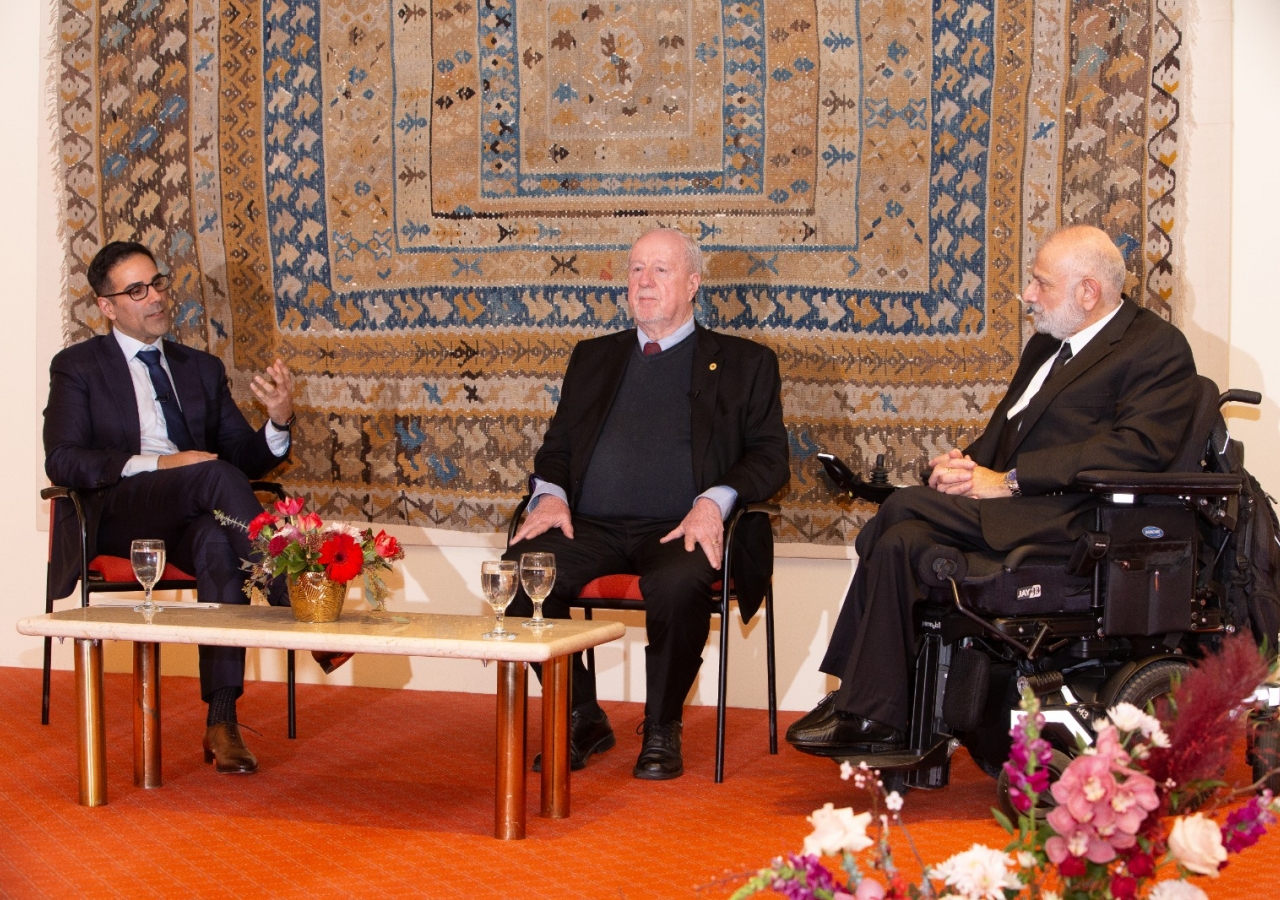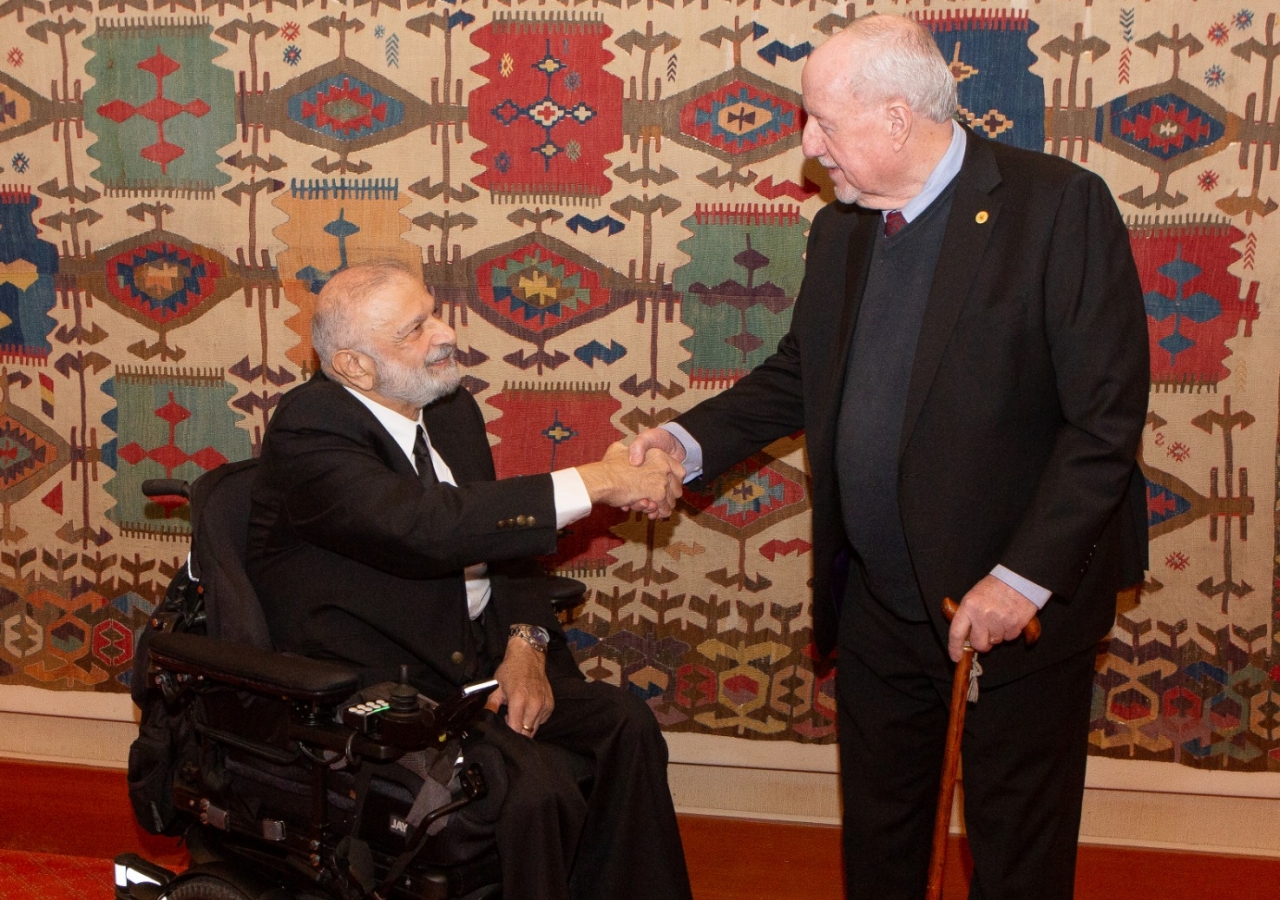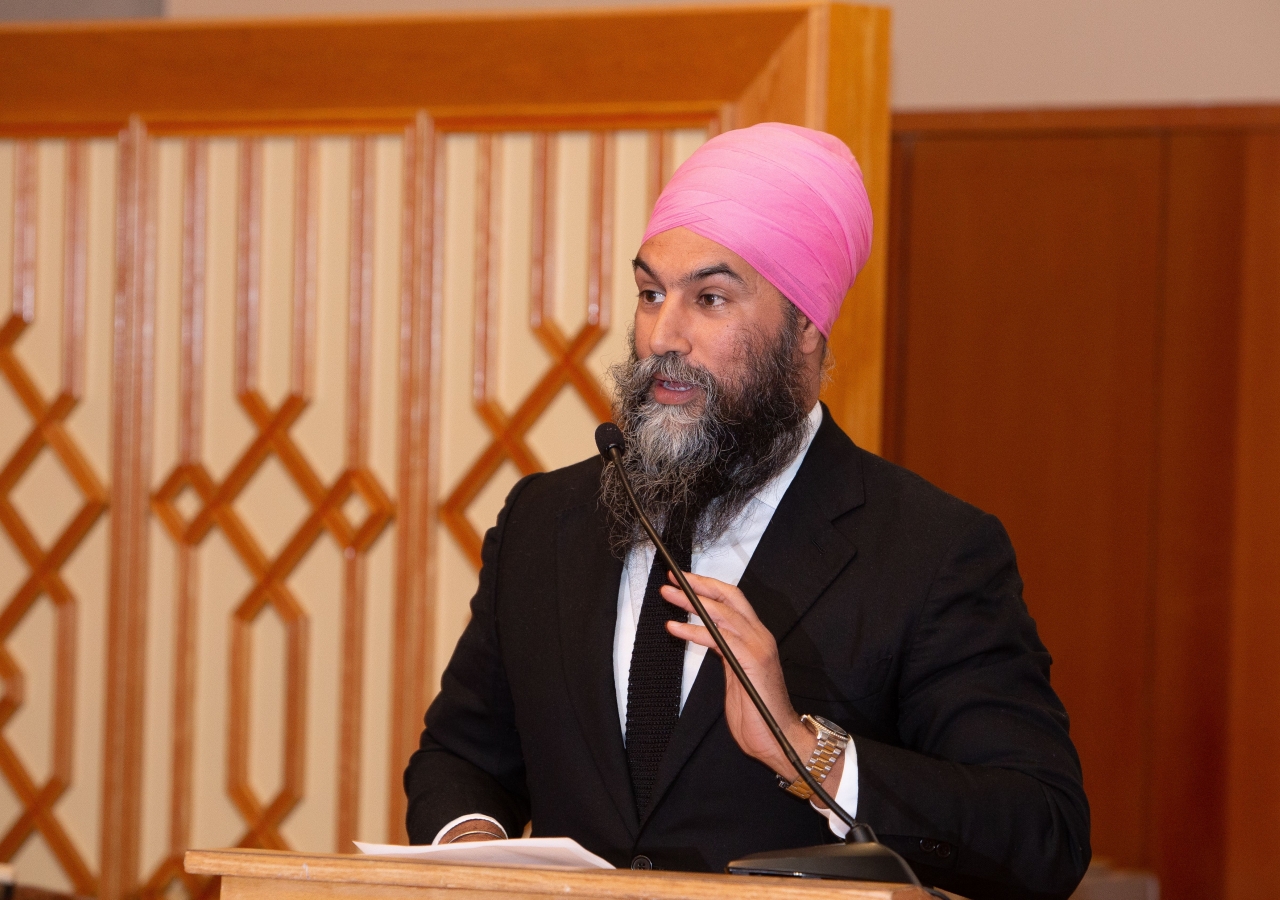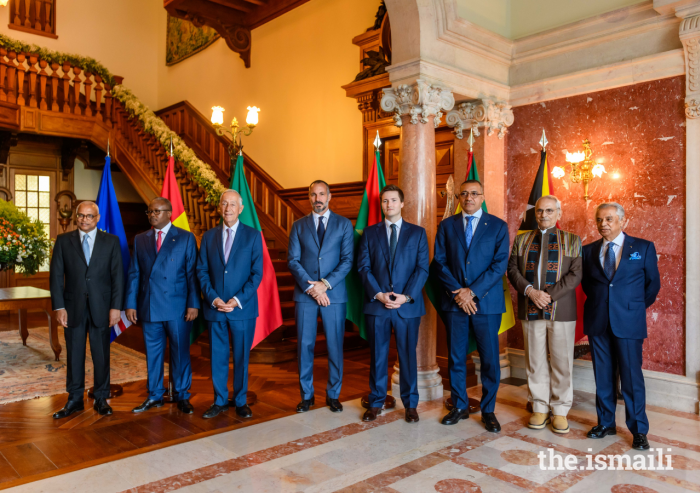During a special reception hosted by the Ismaili Council for British Columbia marking the 50th anniversary of the significant presence of Ismailis in Canada, along with Immigrant Services Society of BC — also celebrating their 50th anniversary — Noorallah Jamal was able to meet and shake hands with Michael Molloy, the immigration officer who facilitated his entry and ultimately his lifetime spent in Canada.
Michael was one of the Canadian immigration officials who assisted the Immigrant Services Society of BC in bringing over 6,000 Ugandan-Asians to Canada, and was second-in-command at the Kampala office at the time of the expulsion.
Michael and his team had major logistical challenges to overcome during the three-month expulsion notice period, and quickly mobilised a team to begin processing thousands of cases. This was all the more challenging given the lack of a Canadian Embassy in Uganda.
At the time, Noorallah Jamal, a paraplegic 21-year-old, and his family were appealing to Canadian officials to accept their request to enter the country.
At the anniversary event, Michael and Noorallah had the opportunity to reminisce during a fireside chat, moderated by Canadian news anchor Omar Sachedina.
Recalling the chaos and confusion upon arriving in Kampala, Michael described the experience of devising a plan to get thousands of people out of the country in under two months. Michael and his colleagues figured out a way to creatively start interviewing and processing the line-up of people using a number stamping method.
In one week, 7,700 application forms were handed out to those fleeing Uganda. This processing was done at the Industrial Promotion Services building (part of the Aga Khan Development Network) which Michael described as “the start of a beautiful relationship.”
Michael also acknowledged the role that this mass migration played in Canada’s future immigration policies.
“You can’t overestimate the positive impact you made,” Michael said, referring to the almost 6,000 people that emigrated from Uganda. “By the end of the first year, there were exactly 12 people still receiving government assistance. Everybody else was working and many had actually started businesses.”
Many large waves of immigration followed, for which Michael said, “Those people are in enormous debt to the way your parents and yourselves performed in those first few years.”
Noorallah is one such example.
Noorallah did not let his disability hinder him from overcoming the challenges of leaving his home country and settling in a new one. Upon arrival in Canada, volunteers associated with Immigration Services Society of BC helped Noorallah find rehabilitation centres and sports organisations where he thrived. He went on to become a Paralympic bronze medalist in wheelchair table tennis, a Pan-American wheelchair games double gold medalist, and triple bronze medalist in table tennis. He also participated in track and field and basketball.
He has also volunteered with the Aga Khan Conciliation and Arbitration Board along with various organisations that help people with disabilities.
At the end of the event Noorallah expressed gratitude to both Michael and the Canadian government, saying: “I’m very glad I’m here, as there were no resources or support for people like me back home, so thank you Canada.”
Michael’s concluding remarks acknowledged Prime Minister Pierre Trudeau’s role in the anniversary that was being celebrated. He also said, “We have a precious commodity here in this country — like no other in the world — of accepting people and we need to guard that accepting spirit.”
During the event, Mr Jagmeet Singh, leader of the New Democratic Party of Canada, echoed this sentiment and praised the example set by a struggling, immigrant community 50 years ago:
“To see the Ismaili community not just come to Canada and get by, but to thrive and then to give back is a true testament to the Ismaili community, and, I think, a beautiful example of what we want to achieve here in Canada: create a home for people to come in to thrive, and to create a home where people can contribute in such a meaningful way. So I just want to acknowledge the resilience of the Ismaili community to have contributed in such a beautiful and powerful way across the country and across the globe.”










